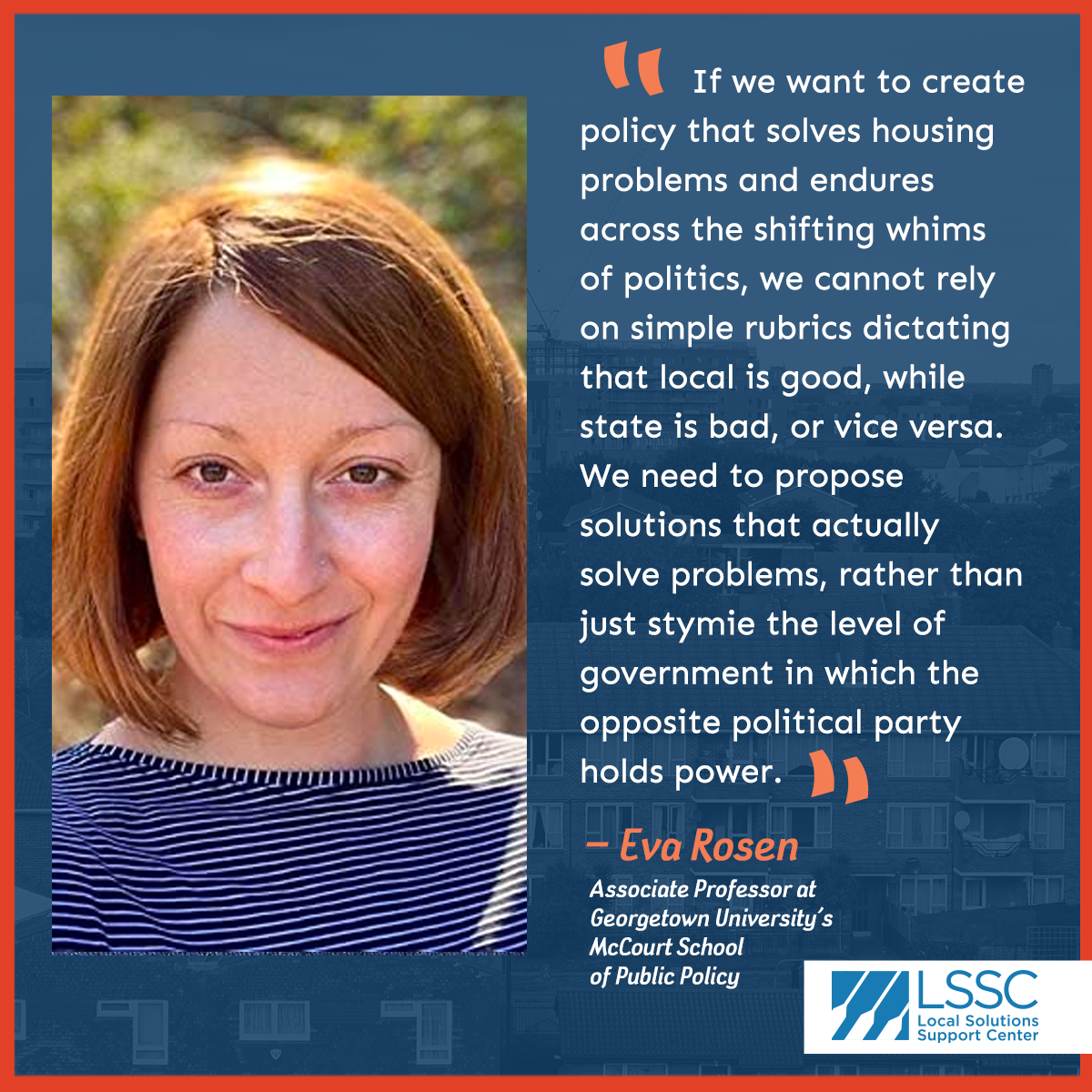Exploring the Double-Edged Sword of Housing Preemption
In the complex landscape of American governance, the tension between state and local authorities has increasingly taken center stage. Preemption, or the legal practice of (often state) governments limiting the power of lower governments to regulate any range of issues, has become more and more common and far-reaching. Issues related to housing, a domain that has long been a battleground between different levels of government, are no exception.
Housing is ripe for preemption because it is underregulated at the federal level, leaving a vacuum at the state and local levels. As such, housing policy in the U.S. taps into an enduring tension between landlords’ rights as property owners and tenants’ claims to housing security. In a country whose laws place enormous importance on the preeminence of property ownership, and which has devolved much of the responsibility of housing construction, affordability, and regulation to the private market, we might ask: What is the best level of government at which we should deal with housing quandaries related to affordability that pit landlords and tenants against each other?
In recent years – and especially in response to the pandemic – cities and states across the United States passed a wave of tenant protections. These measures ranged from protecting tenants with housing subsidies from discrimination, to promoting housing affordability and stability through mechanisms like rent stabilization, inclusionary zoning, and better regulating evictions.
Some state legislatures are responding by passing or strengthening measures to preempt these very housing protections. Some 33 states have passed legislation that bars one type of housing protection or another. This type of preemptive legislation in the realm of housing is not new. In Texas, local ordinances passed in both Dallas and Austin (2014) prohibiting landlords from refusing prospective tenants solely based on their housing voucher subsidy were swiftly nullified by the 2015 Texas law that preempted cities from passing such legislation. These Source of Income (SOI) protection laws would have made it easier for subsidized renters to find housing in the private market and successfully use their voucher, however, they were essentially dead in the water.
But sweeping, so-called “Death Star 2.0” bills that have been passed in states like Texas and Florida in the last year are much broader than any that came before. So broad, that experts don’t even agree entirely on their reach. Their main goal appears to be to cripple action by certain local, and often urban, governments. The Texas bill prevents cities and counties from implementing policies that contradict state law unless explicitly authorized. Defenders argue that it safeguards Texas businesses from government overreach in blue cities. However, the law represents a substantial expansion of preemption efforts, effectively gutting hard-fought local tenant protections.
Similarly, Florida lawmakers introduced a controversial bill this year that broadly preempts local efforts to bolster tenants' rights. Housing advocates estimate that this law will effectively nullify 46 local tenant protection ordinances, including those related to rent stabilization, eviction processes, and SOI protections.
The tension between state and local control is not a simple one though. Local governments can do as much harm as good, while states can be both adversaries to affordable housing and tenants’ rights as they can be protectors. California, a notoriously blue state, provides an interesting counter example to Texas and Florida. The long-standing Housing Accountability Act (HAA), passed back when Ronald Reagan was governor in 1982, provides that cities must approve proposed new housing that meets zoning requirements and “objective” standards such as height and density, as long as it will not pose a health or safety risk. But a number of cities, especially affluent, coastal communities have flouted this regulation, repeatedly denying qualified housing projects under the guise of environmental and other concerns. Unless the state or the courts intervene to enforce state law, it's easy for cities to ignore the state mandates.
So, what do the states of Texas and Florida have in common with certain coastal cities in California? They are both undermining the authority of another level of power, in the name of knowing better. Most importantly, they are doing so without any alternative proposals to solve the problems at hand. Texas and Florida aren’t offering any solutions for making housing more affordable or helping subsidized tenants find homes to rent. These cities in California have no proposals as to how to solve the housing shortage. It’s a “just not that” approach.
If we want to create policy that solves housing problems and endures across the shifting whims of politics, we cannot rely on simple rubrics dictating that local is good, while state is bad, or vice versa. We need look no further than to the basic principles of federalism here. We need to propose solutions that actually solve problems, rather than just stymie the level of government in which the opposite political party holds power.
While states and local governments frequently oppose federal intervention, it is worth noting the conflict they sometimes enter into with each other. This conflict undermines the principles of federalism that so many claim to hold dear, hindering the development of robust, context-specific solutions to urgent policy problems like housing. If local governments flout state law, while states enact broad preemption laws that override local approaches to landlord-tenant disputes and affordable housing solutions without offering alternatives, looking to the realm of federal policy may be the best way to solve these problems.

